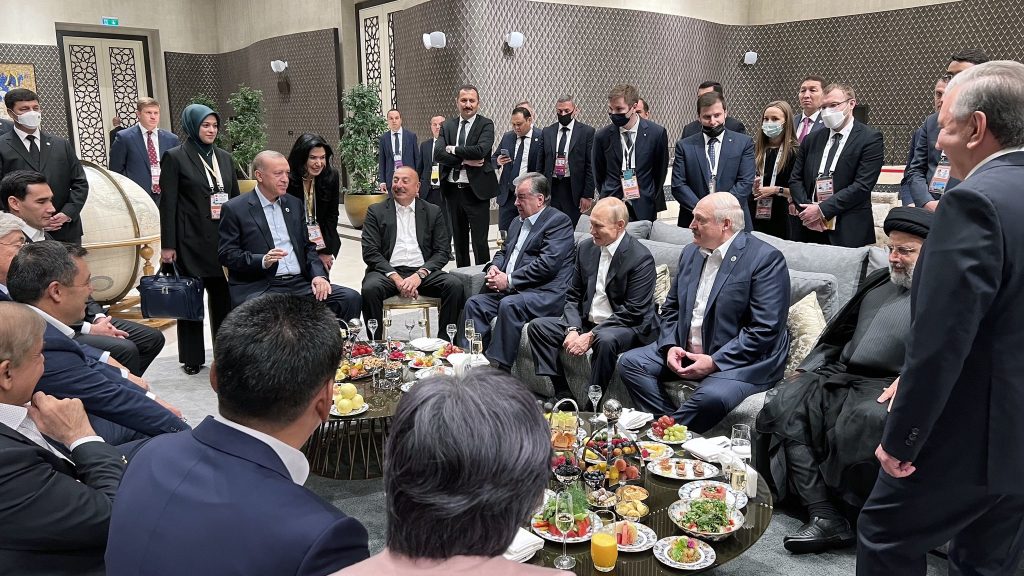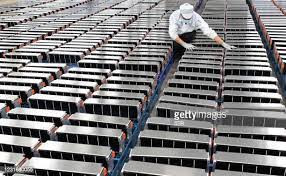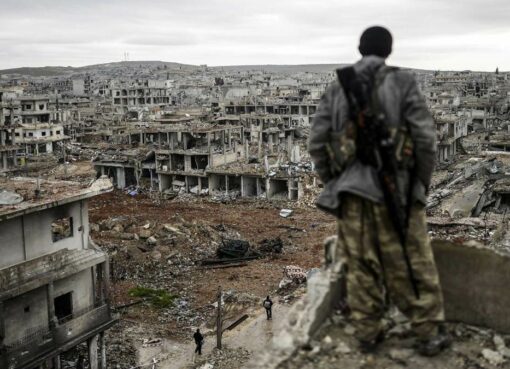Although President Erdogan has successfully maneuvered through several international minefields turning them to his advantage, most world leaders are skeptical of his moves. At the moment, he is indispensable to the Western world as Turkey plays a crucial role of serving their interests in Europe, Asia and Africa. However, as they say, “It is the economy, stupid”. The country’s current economic situation is not helping him and if the current trends continue, he may find himself in a dire situation.
by Prasad Nallapati
Turkey’s military support, with its drones playing a pivotal role, has proven to be a decisive factor in winning armed conflicts across Eurasia and President Erdogan is reaping enormous benefits in return from those it had supported. It got a deal from Tripoli-based Libyan Government of National Unity, which controls only a small part of the country, for exploration of gas in disputed zone of the Eastern Mediterranean Sea; received lucrative grain and energy supplies out of a negotiated arrangement in Ukrainian conflict; and secured multi-billion-dollar contracts from Azerbaijan.
Erdogan mended ties where it is required and bullied others when he can afford to make them fall in line of his domestic and international policies. He positioned himself to mediate between the West and Russia in the Ukrainian conflict that resulted in setting up a `food grain corridor’. He continued to keep Sweden and Finland guessing their fate of joining the NATO even as they agree to demands of curtailing activities of the followers of Erdogan’s archrival, Fethullah Gulen. The latter, who lives in the United States, is accused of plotting to topple Erdogan’s government.
Grain Corridor and Energy Supplies
The grain corridor, negotiated between the UN, Turkey, Russia and Ukraine in July, was to facilitate supply of Ukrainian wheat and other food grains to poorest countries that were affected by supply chain disruptions due to the Ukraine war. However, President Putin pointed out in his interview on November 2 that “34 per cent of the grain exported under the deal goes to Turkey, 35 percent to EU countries and only 3-4 percent to the poorest countries.” Turkey is the main beneficiary of the grain deal and is clearly profiting from this economic corridor as its companies reportedly resell the grains to European countries at higher price. Similarly, Turkey is also grabbing up additional supplies of Russian oil and gas at discounted price. It has doubled its oil imports from 98,000 bpd last year to over 200,000 bpd this year.
Not just that. Turkey is also poised to be a major hub for sale of Russian gas much to the chagrin of its Western partners. With the European countries weaning away from Russian energy supplies and Nord Stream pipelines damaged by blasts, President Putin has proposed Turkey to be the natural gas hub for supplies to willing buyers. Erdogan has lapped up the idea and a detailed roadmap is expected to be laid out by the end of this year along with a conference of suppliers and buyers to operationalize the proposal. Putin and Erdogan are confident that there would be many willing European buyers as the winter takes its bite.
Libya’s Maritime Concessions to Prospect for Oil and Gas
A MOU signed with the Libyan government, led by caretaker Prime Minister Abdul Hamid Dbeibeh, gives Turkey the right to prospect for oil and gas in Libya’s `territorial’ waters in the Mediterranean Sea. The deal is seen as a `return gift’ for Ankara’s military support to Tripoli-based government to ward off an attack in 2019 from forces of military chief Khalifa Haftar, who controls eastern part of the country, backed by Egypt, Russia and the UAE. Dbeibeh is also counting on Turkey’s military and political assistance to stay in power despite the fact that he was dismissed by Parliament last February. The agreement was widely criticized as selling away of the country’s resources in violation of the government’s limited powers. The maritime claims of Libya and Turkey also cut into the exclusive economic zones of Greece and Egypt making the deal further controversial. Erdogan is unperturbed by such serious opposition to the agreement and is going ahead to take advantage of rich maritime energy deposits.
Multi-Billion Dollar Contracts from Azerbaijan
For Azerbaijan, which has scored a decisive victory against Armenia three years ago with Turkish military assistance, it is the time of giving back to Ankara. Baku has retaken larger parts of Karabakh enclave from Armenia in the war and has already begun distributing lucrative contracts of reconstruction of the enclave among the ruling families and associates of itself and its international backers. So far, the Azerbaijani government has awarded projects in Karabakh worth over $2.9 billion with the major chunk going to Turkish companies. More such contracts are in pipeline as the two warring nations are said to be close to sign a final peace agreement that will cede full control of Nagorno-Karabakh to Azerbaijan.
According to Ulkar Natiqqizi, an Azerbaijani journalist, companies close to Erdogan have received hundreds of millions of dollars’ worth of contracts for the reconstruction in the enclave. In some cases, family members of Erdogan and his Azerbaijan counterpart, Ilham Aliyev, are business partners, such as the large agricultural complex in the Zangilan region. The two leaders personally visited Karabakh on October 20 where they inaugurated a new airport in Zangilan, near the borders with Armenia and Iran. They have also laid the foundation for the $ 100 million Dost Agropark that will eventually employ 500 people to raise upto 10,000 head of cattle. The Turkish investor in the Dost Ziraat project, Abdulkadir Karagoz, is not only a business ally but a member of Erdogan’s family. The Azerbaijani partner is Pasha Investments, a part of the Pasha Holding company that brings together all the firms owned by the family of Aliyev’s wife and first vice president, Mehriban Aliyeva.
Other Turkish businessmen involved in contracts in the region include Mehmet Zeki Tugrul, Cemal Klyoncu, Mehmet Cengiz, and Yildirum Demiroren who are key political allies of Erdogan. Cengiz and Kalyon are two of what has become known as the “Gang of Five” Turkish firms that have close links to Erdogan and the ruling party and which have been awarded most large government tenders. The two are now awarded lucrative contracts in Karabakh including construction of roads and railway lines, and three gold and copper mines.
Iran sees Turkey’s Projects in Karabakh as Security Threat
Iran sees Turkey’s presence on its borders as a security threat and sent warning signals to Azerbaijan against any geopolitical changes that would impinge on its own security and that of Armenia. Iran’s miliary has conducted large-scale military drills on its border with Azerbaijan, including practicing crossings of the Aras River, which defines a large part of the border between the two states. The exercise is said to be a warning against Azerbaijan’s intentions, with Turkish political and financial backing, for a new transport link connecting Azerbaijan’s enclave of Nakhchivan with the Azerbaijani mainland through “Zangezur corridor.” The route would pass along Armenia’s border with Iran which may have consequences for Armenia-Iran commerce as well as cutting of a major Iranian transit link with the South Caucasus.
Iran’s President Ibrahim Raisi met his Azerbaijani counterpart Ilham Aliyev in Astana on October 13 where he is believed to have conveyed his rejection of any change in the historical borders, the geopolitics of the region, and the Iran-Armenia transit route” and that would “elicit a decisive response from Iran.” Foreign Minister Hossein Amirabdollahian opened on October 22 a new consulate in Kapan, in the southernmost Armenian province of Syunik, which borders Azerbaijan and Iran in what is said to be a direct message to Azerbaijan and its backer Turkey.
Conclusion
Although President Erdogan has successfully maneuvered through several international minefields turning them to his advantage, most world leaders are skeptical of his moves. The empire he is trying to build across Eurasia is on shaky grounds. He may appear to have patched up with his former adversaries, including Saudi Arabia, the UAE and Russia, but his capricious nature is ever suspicious. At the moment, he is indispensable to the Western world as Turkey plays a crucial role of serving their interests in Europe, Asia and Africa. It is the second largest land forces component of the NATO, after the US. It is hosting the Allied Land Command headquarters and the Incirlik and Konya airbases. Internally, he has systematically rooted out any formidable opposition to his power.
However, as they say, “It is the economy, stupid”. The country’s current economic situation is not helping him. Official inflation rate is around 83 percent and Turkish currency, Lira, has shed 29 percent against the US Dollar this year, having lost 44 percent last year. If the current trends continue, he may find himself in a dire situation.
(Prasad Nallapati, former Additional Secretary to Govt of India, is President of the Hyderabad-based thinktank, the Deccan Council for Strategic Initiatives)




